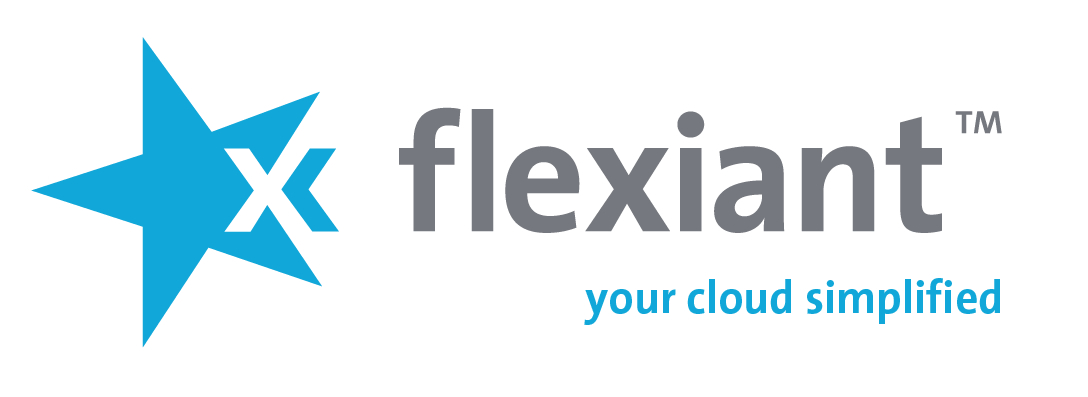Dear all, I am really happy and proud to announce that I am joining the Flexiant team starting this week. In the last few years, Flexiant has been building a stunning Cloud Management Platform with the goal of enabling service providers to join cloud space in few easy steps, and with the possibility to still highly differentiate their service.
The cloud infrastructure market landscape is but in its final configuration and I have the ambition to actively contribute to how it will look like in the next few years. I am joining Flexiant in a moment when the cloud industry is facing a terrific growth, with just a bunch of players out there, still immature technologies, vendors struggling to adapt their business model and a general misperception around cloud services. There is plenty of work to do!
But let me give you a little bit more of insights about why I have picked Flexiant and what great things I think we can do together.
A differentiated cloud service
I enjoyed observing the recent signs of a required differentiation in the cloud infrastructure market. After a large consensus around certain technologies, with such a big (and growing) market to conquer, competition is getting tougher, as more players try to come onboard everyday. Although price initially appears as the main competition driver, considering the impressive cloud services portfolio of Amazon Web Services, highly differentiated service offerings will be required for those who seriously aim at competing against the giant.
Why would I want to compete with that giant? Can it be enough for me to offer some complementary service in order to exploit the market reach of Amazon, instead of going against it? Well, we all know the consequences of a unique-player dominated market, we’ve seen it before (Microsoft, Oracle, etc.) and we all can concur that during those times innovation has been slower than ever, with the abuse of dominant positions that negatively affected the customer experience. The opportunity out there is big and I don’t think we want to leave the entire market to one player again, do we? And if the goals of the cloud is to commoditize technology by offering it as-a-service, it’s right there, on the service side, that there is need and opportunity to innovate.
Recently we have had a concrete proof of this need for differentiation. The acquisition of Enstratius by Dell was driven by the need for a highly differentiated cloud service that fills the gap between commodity infrastructures and enterprise requirements. I was lucky enough to have the opportunity to work with the Enstratius team and I can tell they were winning deals whenever it was about governance and compliance, all typical enterprise requirements. But the real news there was Dell dropping its previously announced OpenStack-powered cloud service, something that will never come to life instead. All those players betting on OpenStack wanted to make it the industry standard for building cloud infrastructure and now what? They suddenly remembered they have to compete with each other. And the imperative is: differentiate!
On this matter, our own Tony Lucas (@tonylucas), European pioneer of cloud services and SVP product at Flexiant (if you don’t believe check out this video of Tony talking about cloud with Jeff Barr of AWS back in 2007), has written an extensive White Paper where he scientifically goes through why cloud federation is not the optimal model for competing in the IaaS market, with differentiation as the winning alternative. Beside suggesting everyone in this industry to read it carefully, it reminded me of the biggest failure of cloud federation we have just recently witnessed: vCloud providers. The launch of VMware hybrid cloud service is the clear demonstration that federating providers with the same technology but different cultures, goals and SLAs, does not work. It can be a short term opportunity for the “federatable” cloud software vendor, but a secure failure on the mid-long term. Read Tony’s to understand exactly why.
A matching vision
For those who know me, I am a public cloud only believer. “Private cloud” was just a name given legacy vendors who didn’t want to give up on their on-premises business while having the opportunity to exploit the marketing hype and sell extra stuff to their rich customers. “Hybrid cloud” is how we are naming the period it takes to complete the journey to the public cloud.
Again, the most recent moves of the big guys confirm that public cloud is the way to go. Legacy software vendors are trying to convert themselves into service providers, mostly by acquiring companies rather than innovating from inside (e.g. yesterday’s news on IBM multi-billion acquisition of SoftLayer). So should we foresee a public cloud market dominated by AWS and challenged only by few other big whales? I don’t think so. If AWS really “gets” the cloud, the internal cultural conversion needed within traditional vendors will be painful and won’t really bring anything substantial at least for the next 3 to 5 years. Their current size and the internal resistance to give up on recurring revenue derived from on-premises business, will not let them be a real challenge to AWS in the near term. Instead, small, agile, highly innovative and differentiated niche players are those which will eventually contribute defining the next cloud infrastructure market landscape.
For more scientific evidence of why public clouds will take over the world, I can suggest another brilliant read by Alex Bligh (@alexbligh), the Internet rock star who has been behind Nominet (the UK domain registry) and currently CTO at Flexiant. His detailed methodical analysis led him to a conclusion:
And [so] will be for cloud computing: it’s not the technology that matters per se, it’s the consequent effect on economics. Private cloud is in essence an attempt to use cloud’s technology without gaining any of the efficiencies. It is for service providers to educate their customers and prospects, and the audience will often be financial or strategic as opposed to technical.
Alex Bligh, CTO at Flexiant
An enthusiastic choice
Visionaries like Tony and Alex, a mature product like Flexiant Cloud Orchestrator and the guidance and business savviness of our CEO George Knox (@GeorgeKnox) are all ingredients that will eventually lead to making some real difference in the coming months. Finding myself aligned to the company vision and culture, I am really enthusiastic to be on board and I foresee big things ahead of us. Stay tuned and ping me if you want to know more about Flexiant!
Flexiant is a leading international provider of cloud orchestration software for on-demand, fully automated provisioning of cloud services. Headquartered in Europe, Flexiant’s cloud management software gives cloud service providers’ business agility, freedom and flexibility to scale, deploy and configure cloud servers, simply and cost-effectively. Vendor agnostic and supporting multiple hypervisors, Flexiant Cloud Orchestrator is a cloud management software suite that is service provider ready, enabling cloud service provisioning through to granular metering, billing and reseller whitelabel capabilities. Used by over one hundred organizations worldwide, from hosting providers, large MSPs and telcos, Flexiant Cloud Orchestrator is simple to understand, simple to deploy and simple to use. Flexiant was named a ‘Gartner Cool Vendor’ in Cloud Management, received the Info-Tech Research Group Trendsetter Award and called an industry double threat by 451 Group. Flexiant customers include ALVEA Services, FP7 Consortium, IS Group, ITEX, and NetGroup. Visit www.flexiant.com.



